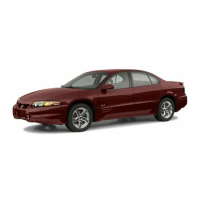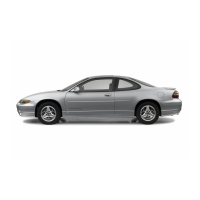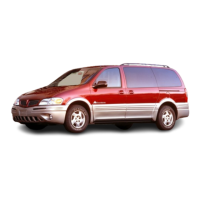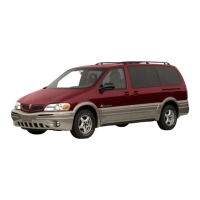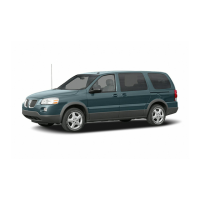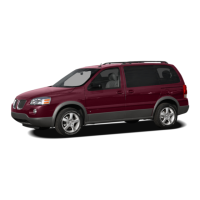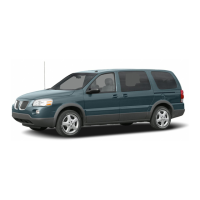Do you have a question about the Pontiac 2002 Montana and is the answer not in the manual?
Explains safety cautions, the CAUTION box, and the circle-with-slash symbol.
Explains symbols used on vehicle components, controls, messages, gauges, and indicators.
Details on adjusting, removing, and reinstalling seats, including manual and power seat operations.
Instructions for adults on proper lap-shoulder belt use, including latching and height adjustment.
Explains frontal and side impact air bag systems, their function, and how they work with safety belts.
Emphasizes the need for child restraints and explains infant/young child safety measures.
Explains the LATCH system for securing child restraints, including anchor locations.
Details operation of power windows, including normal and express-down features, and switch locations.
Explains manual and power door lock operation, security features, and the danger of unlocked doors.
Describes how to lock/unlock doors and liftgate using the transmitter, FCC compliance, and operating modes.
Explains the five ignition key positions (LOCK, ACCY, OFF, RUN, START) and their functions.
Provides instructions and notices on how to start the vehicle's engine, including cold weather and flooding precautions.
Explains the shift lever positions (P, R, N, D, 3, 2) and the automatic transaxle shift lock control system.
Explains the operation of the turn signal and multifunction lever, including lane change signals.
Describes controls for exterior lighting, including automatic headlamp control and parking lamps.
Outlines OnStar services, buttons, indicator lights, and various features like emergency calls and diagnostics.
Provides essential advice on driving defensively, expecting the unexpected, and maintaining following distance.
Discusses the dangers of alcohol and driving, its effects on BAC, and legal limits.
Details braking action, reaction time, stopping distances, and factors affecting them.
Explains the function of ABS, its self-check process, and the warning light.
Covers trailer towing safety, equipment, and the impact of trailer weight on vehicle performance.
Explains how to properly load the vehicle, including weight limits and load distribution.
Explains how to use hazard warning flashers to alert others and signal a vehicle problem.
Provides detailed, safe instructions for jump-starting a vehicle using jumper cables and another vehicle.
Provides step-by-step instructions for safely changing a flat tire using the vehicle's jack and tools.
Encourages using dealer service, highlights genuine GM parts, and advises on keeping service records.
Discusses gasoline octane requirements, additives, and California fuel specifications.
Explains how to check engine oil levels, when to add oil, and the importance of using the correct type.
Covers tire maintenance, including pressure checks, wear indicators, and buying new tires.
Explains the function of fuses and circuit breakers and how to access the fuse blocks.
Outlines services and intervals for vehicle maintenance based on driving habits and conditions.
Details routine checks and services owners can perform, like fluid levels and tire pressure.
Lists essential inspections recommended for dealers or qualified service centers.
Provides a list of specific fluids and lubricants, including part numbers, for vehicle maintenance.
Explains Pontiac's philosophy of customer care, including warranty and assistance programs.
Outlines steps for resolving customer concerns with dealerships and Pontiac assistance.
Details the roadside assistance program, services offered, and how to contact for help.
Instructs how to report safety defects to NHTSA and provides contact information.
Guides on how to report safety defects directly to Pontiac/GM, providing contact details.
Information on ordering service manuals, unit repair manuals, and service bulletins.
| Brand | Pontiac |
|---|---|
| Model | 2002 Montana |
| Category | Automobile |
| Language | English |




